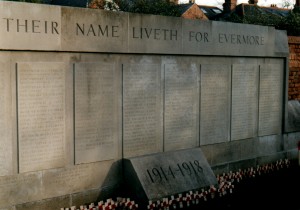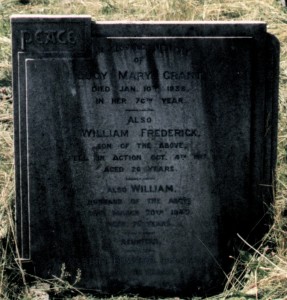Jacob Gotz
Private G/93489
30th Battalion Middlesex Regiment
Division 71 and 72
War Plot
Jacob Gotz was not local to Reading. He was the husband of Emma Gotz, of 9, Humbolt Mansions, Lillie Road, Fulham Cross, London. Jacob was accidentally killed on 13th February 1918, aged 30. The Reading Standard gave both an account of the accident and also the inquest.
Standard. February 16th 1918:
Fatal Bus Accident
Soldier killed whilst hanging on to van.
” A shocking accident occurred on Wednesday afternoon just outside Reading, when Jacob Gotz, 30, of the Middlesex Regt, was crushed between a motorvan and a bus, with fatal results. The accident occurred on what is known as Shepherd’s Hill, the hill which runs up out of Reading from the London Rd train terminus. The deceased was riding a bicycle behind a motor van on the near side going down hill. He was hanging on with the right hand and changing over to the right side of the van, he tried to catch it with his left hand. As he was passing over to the offside of the van for this purpose, he ran into a motor bus which was going up the hill, with the consequence that he became pinned between the two vehicles, his head was smashed and his neck broken. Gotz, who was born in Germany, was a well known boxer and wrestler, and carried on the business of a bakery before the war. Papers were found in his possession addressed to 9, Humbolt Mansions, Lillie Rd. Fulham”. This was the address of his wife.
Standard February 23rd 1918:
Account of inquest on
Jacob Gotz
Jacobh Gotz was aged 30 and a Private with 30th Isle of Wight, Middlesex Regiment and stationed at Reading. Gotz was born in Germany, but he had no nationality as he had been denationalised. His home was Fulham where he had seen his brother Philip Gotz and told him he was cycling back to Reading on February 13th.
The driver of the bus involved was on Shepherds Hill and saw a lorry coming towards him. Just as the vehicles were level a soldier on a bike came out from behind the lorry and collided with the dashboard of the bus. Gotz ended up under the bus with extensive injuries, tools had to be fetched to “extricate” the body. Death was instantaneous. Verdict “Accidental death” both drivers are exonerated of all blame.
The paper tells us that there was an impressive military funeral starting from Sutton Seeds Trial ground with a large body of his regiment and band of the Pioneer School of Instruction. Comrades were pall bearers and the regiment sent a beautiful wreath. Jacob Gotz name is commemorated on the screen wall in the war plot.
 |
